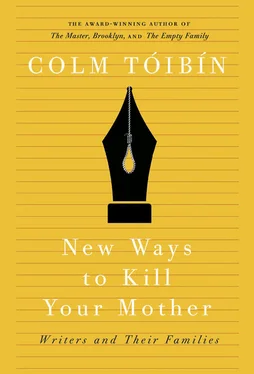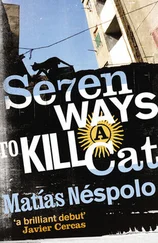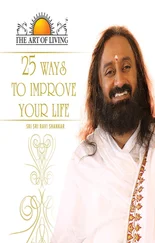Monroe had commented as well on the opening of the last stanza:
Compass, quadrant and sextant contrive
No farther tides…
‘Nor do compass, quadrant and sextant,’ she wrote, ‘contrive tides, they merely record them, I believe.’
‘Hasn’t it often occurred,’ Crane replied,
that instruments originally invented for record and computation have inadvertently so extended the concepts of the entity they were invented to measure (concepts of space, etc.) in the mind and imagination that employed them, that they may metaphorically be said to have extended the original boundaries of the entity measured?
In the same letter, he quoted from Blake and T. S. Eliot to show how the language of the poetry he wrote and admired did not simply ignore logic, it sought to find a logic deeply embedded in metaphor and suggestion. This poetry, he made clear, did not follow the lazy path dictated by the unconscious, or allow the outlandish or the merely associative to triumph, but was deliberate and exact, even though it belonged ‘to another order of experience than science’. He worked towards both ‘great vividness and accuracy of statement’, even if it might seem to some, including Monroe, that the vivid triumphed over the accurate.
Harold Hart Crane was born in Ohio, where his father owned a factory that made syrup, and later founded the Crane Chocolate Company, which manufactured candy. (His father invented the type of candy known as Life Savers.) The relationship between Crane’s parents was often difficult, with many separations and reconciliations; Crane at the age of nine was sent to live with his maternal grandmother, Elizabeth Belden Hart, to whom he became very close. He shared a certain emotional instability with his mother, who joined the Christian Scientists. At sixteen he attempted suicide on the Isle of Pines off Cuba, a property owned by his mother’s family.
From an early age Crane expressed his interest in becoming a poet. At seventeen, he published his first poem in a magazine. Entitled ‘C 33’, it was about the trial and imprisonment of Oscar Wilde:
He has woven rose-vines
About the empty heart of night,
And vented his long mellowed wines
Of dreaming on the desert white
With searing sophistry.
And he tented with far truths he would form
The transient bosoms from the thorny tree.
O Materna! to enrich thy gold head
And wavering shoulders with a new light shed
From penitence, must needs bring pain,
And with it song of minor, broken strain.
But you who hear the lamp whisper through night
Can trace paths tear-wet, and forget all blight.
That same year, when he submitted poems to the magazine Others he was told by William Carlos Williams that they were ‘damn good stuff’.
Part of the reason for Crane’s supreme self-confidence and precocious ambition arose from the fact that his enthusiasm for writing was not watered down by much formal education. His reading became a way of escaping from the war between his parents. In his youth he found the poets he was looking for in the same way as rushing water will find a steep incline. He read Shakespeare, Drayton, Donne, Blake, Keats, Shelley, Coleridge, Whitman, Poe, Baudelaire, Rimbaud and Eliot with delight, and also the work of the Jacobean dramatists. And in the same years he could also list the poets whose work he disliked; they included Milton, Byron, Tennyson and Amy Lowell.
In 1917 his mother suggested that he drop the ‘Harold’ when he published his poems: ‘In signing your name to your contributions & later to your books do you intend to ignore your mother’s side of the house entirely… How would “Hart Crane” be?’ His father disapproved of his interest in becoming a writer: ‘Poetry is alright; your chosen vocation is alright, but when you are living in New York and spending $2 a week for tutoring [in French], out of an allowance of $25, it is not alright; it isn’t as things should be.’
In his late teens and early twenties Crane moved between New York and Cleveland, getting intermittent support, financial and emotional, from one or the other of his parents, and making literary friends, including Sherwood Anderson, whom he admired, and later Allen Tate, Waldo Frank and Eugene O’Neill, and meeting editors wherever he could. He had a number of homosexual love affairs. He read Dostoevsky with considerable interest, and ‘that delightful Moby Dick’ , and then a smuggled copy of James Joyce’s Ulysses , writing to a friend: ‘He is the one above all others I should like to talk to.’ Eventually, having worked at odd jobs and published poems in magazines, he went to work for his father’s company. But relations were difficult and Crane severed contact with his father for more than two years. He began working as an advertising copywriter the following year and held jobs in advertising agencies in Cleveland and New York between periods that he devoted to either writing or drinking or both.
Among poets and readers of poetry, Crane established a reputation as the most promising poet of his generation. In 1925, after his father refused to give him an allowance, the millionaire Otto Kahn gave him $2,000 to work on his long, ambitious poem The Bridge . In December 1926 his first book of poems, White Buildings , was published. His drinking increased, as did his erratic wandering and his constant difficulties with his parents. Like most young men of his age he wanted love from his mother and money from his father. Neither parent felt fully able to satisfy his needs, but by doing so sporadically, they seemed instead to magnify certain vulnerabilities in him.
In December 1928 Crane travelled to Europe, seeing Robert Graves and Laura Riding in London and André Gide and Gertrude Stein in Paris. He continued working on The Bridge , which was published in a limited edition in Paris in 1930 and subsequently in a trade edition in New York. He moved to New York, where he wore out his welcome in a number of friends’ houses, then back to Cleveland, and then travelled to Mexico in 1931. He was still drinking. On 27 April 1932, while returning to the United States from Mexico aboard the Orizaba , he jumped from the deck and drowned. His myth as the poète maudit , the doomed, wild, homosexual genius, America’s Rimbaud, had begun; his very name was a warning to the young about the dangers and the delights of poetry. It was a myth that even the seriousness and the immense slow force of his poems and the studious tone of many of his letters would do little to dispel.
In April 1917 Crane wrote to his father of his great ambition: ‘I shall really without doubt be one of the foremost poets in America if I am enabled to devote enough time to my art.’ The poetry he intended to write was to be highly wrought and full of self-conscious and hard-won artistry. Although there are times in his work when a word or a phrase seems chosen at random, selected for its sound as much as its sense, his letters emphasize that he was not interested in a dream language or summoning his phrases at random from the well of the unconscious. In January 1921 he wrote to a friend about the Dadaist movement: ‘I cannot figure out just what Dadaism is beyond an insane jumble of the four winds, the six senses and plum pudding.’ And two weeks later he wrote to another friend: ‘There is little to be gained in any art, so far as I can see, except with much conscious effort.’ Later that year, he wrote again: ‘I admit to a slight leaning toward the esoteric, and am perhaps not to be taken seriously. I am fond of things of great fragility, and also and especially of the kind of poetry John Donne represents, a dark musky, brooding, speculative vintage, at once sensual and spiritual, and singing the beauty of experience rather than innocence.’
Читать дальше












